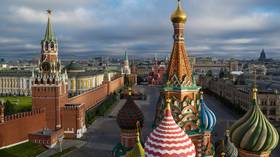Sanctions Shmanctions: Only 1 in 10 Russians say they personally feel effects of Western embargoes

Anyone reading the news in 2014 may remember all those US/UK media articles predicting economic punishments handed out by the West would soon break Russia. Six years later, most Russians are rather blasé about their impact.
The vast majority now believe that the sanctions on Russia didn’t create problems for them and their families, according to independent pollster Levada. Moscow daily Vedomosti reported on Tuesday that only 10 percent of respondents spoke of serious effects from the penalties, but a whopping 87 percent felt they hadn’t caused severe harm.
General concern about the measures is also decreasing – now only 31 percent of Russians are worried about the embargoes, whereas 67 percent of respondents are not concerned. Nevertheless, 79 percent of those surveyed believe Russia ought to normalize relations with the US and other Western partners.
When the sanctions were introduced, they primarily affected the most educated and well-off sections of the population – mainly residents of large cities who used a lot of imported goods, Levada Center Director Lev Gudkov explained.
“[Now] people are tired of it, they understand the money that could be spent on health care and education is spent on foreign policy goals; this is the flip side of the militaristic policy coin,” Gudkov said, adding: “That is why the willingness to normalize relations [with the West] has risen markedly.”
Political analyst Alexei Makarkin has a slightly different view. “Now people want to improve relations with the West, but they do not want to make concessions,” he told Vedomosti. “At the same time, events have occurred that reduce interest in foreign policy, in particular, economic stagnation makes people think about domestic politics and the economy. Priorities have changed.”
Also on rt.com Only C MINUS grade: Putin rates Russia-US relations as more bad than goodOn Monday, TASS published an interview with President Vladimir Putin in which he claimed Russia lost about $50 billion from the coercive measures, while EU states lost more. “Don’t care about these sanctions,” the president said. “This, of course, is a considerable loss, but the imposition of the embargoes forced the country to wake up.”
Putin felt the sanctions created the circumstances for the country to produce vital products it previously imported and to use technology that it did not have or had neglected.
If you like this story, share it with a friend!















